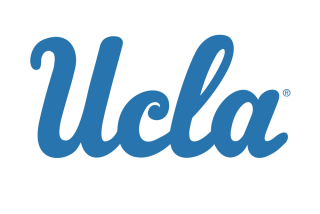Penn State scandal: Will the NCAA consider sanctions?
The much-anticipated Freeh Report, released Thursday, determined that the leadership at Penn State concealed allegations of sexual assaults against children involving former assistant football coach Jerry Sandusky in order to protect the school and its flagship athletic program. Before that, the courts had acted, putting Sandusky behind bars. And the school’s Board of Trustees cleaned house long ago.
So, could the NCAA be next to act?
In a statement Thursday, an NCAA spokesman said Penn State must still answer key questions posed by the NCAA concerning compliance with NCAA bylaws: institutional control, ethics policies and the policies and procedures it has in place to monitor, prevent and detect issues raised in a grand jury report on the scandal.
PHOTOS: Who’s who in the Sandusky case
“Penn State’s response to the letter will inform our next steps, including whether or not to take action,” wrote Bob Williams, the NCAA’s vice president of communications.
Michael McCann, director of the Sports Law Institute at Vermont Law School, said the Freeh Report, which details an in-depth investigation led by former FBI chief Louis Freeh, creates a compelling case for the NCAA to sanction Penn State for “lack of institutional control.”
Other experts say that if the NCAA’s enforcement staff were to become heavily involved in what has largely been a criminal investigation, it could set a new and troubling precedent for how the NCAA polices schools.
“The NCAA works to manage collegiate competition,” said Jo Potuto, a former NCAA Division I Committee on Infractions chairwoman who is a professor of constitutional law at the University of Nebraska College of Law. “It’s not an association in which the national office is supposed to be a hall monitor for everything that occurs on a campus.”
Potuto said that because the Penn State scandal occurred within the football program and on its premises, it is connected to athletics, although the underlying violations are not.
In past situations intertwining athletics and criminal activity, the NCAA became involved only when NCAA rules were violated, Potuto said. The 2003 murder of Baylor basketball player Patrick Dennehy by a teammate is one example.
DOCUMENT: Paterno, Penn State failed in Sandusky case, report finds
“When the NCAA enforcement process was triggered there, it wasn’t because that player was killed by another player on the team,” Potuto said. “It was because the coach paid players under the table.”
The NCAA responded with sanctions that crippled Baylor’s men’s basketball program for several years.
Michael Buckner, a Florida lawyer who has represented schools in NCAA infractions cases, said Penn State would become an NCAA rules-violation case only if NCAA President Mark Emmert “wants to stretch the rules to where they’ve never been stretched before.”
Rather than punishing Penn State for failing to properly monitor its athletic program or, worse, citing the university for lack of institutional control, the NCAA might focus on whether school officials acted ethically.
“It seems that Louis Freeh and the people on the investigative team believe, because that it was football and because that it was a powerful coach, that the investigation didn’t go forward,” Potuto said. “Now that is something that is a matter of NCAA responsibility for college athletics that should be looked at.”
The depth of the Penn State scandal has put the NCAA under tremendous public pressure to act, experts say.
“The NCAA is faced with a public relations issue more than everything else, because everybody thinks they should do something,” said Richard Southall, director of the College Sport Research Institute at the University of North Carolina at Chapel Hill.
Added McCann: “I think people would question the creditability of the NCAA if it did nothing while it dwelled on [other] issues that by comparison seem very unimportant.”
Potuto recommended a cautious approach, lest the NCAA find itself on a slippery slope. “If this is a move the NCAA wants to make, I think everybody needs to be really careful in articulating why and how this needs to happen,” she said.
“It’s really opening a door to a lot more authority in areas of responsibility for the NCAA, and I’m not sure that’s where universities want to go or should go.”
She added: “There’s a famous quote from law that ‘Hard cases make bad law.’
“This strikes me to be one where that’s what’s going on.”
twitter.com/BaxterHolmes
More to Read
Go beyond the scoreboard
Get the latest on L.A.'s teams in the daily Sports Report newsletter.
You may occasionally receive promotional content from the Los Angeles Times.










